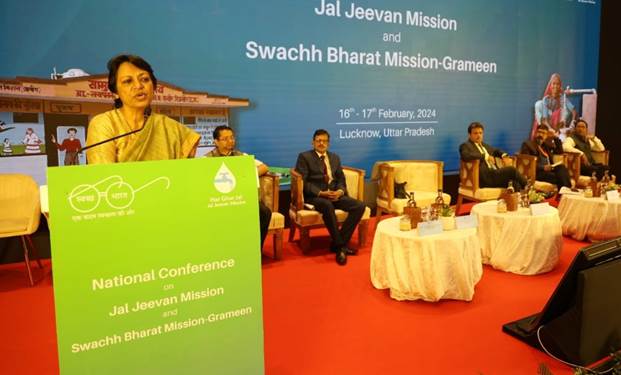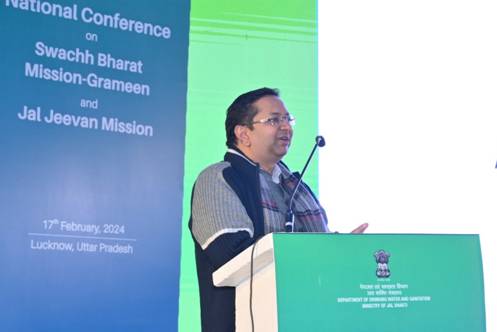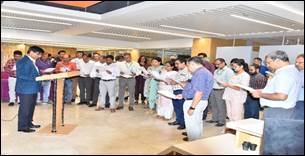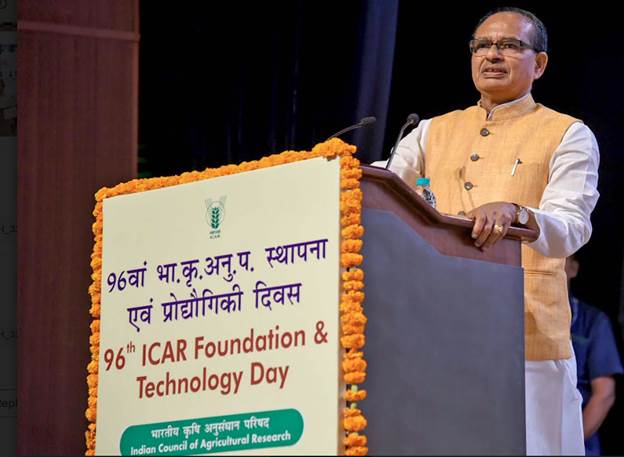The National Conference on Jal Jeevan Mission (JJM) and Swachh Bharat Mission – Grameen (SBM-G) in Lucknow, Uttar Pradesh, continued its resonant melody on Day Two, with a particular focus on SBM-G activities and achievements by various states and union territories.
 Joint Secretary & Mission Director SBM-G, Shri Jitendra Srivastava, struck a keynote chord, urging participants to look beyond mere “saturation” and prioritize program sustainability. He emphasized community engagement, partner collaboration, and ensuring continued toilet construction, repair, and usage. His message resonated throughout the day, encouraging participants to seek innovative solutions for lasting impact.
Joint Secretary & Mission Director SBM-G, Shri Jitendra Srivastava, struck a keynote chord, urging participants to look beyond mere “saturation” and prioritize program sustainability. He emphasized community engagement, partner collaboration, and ensuring continued toilet construction, repair, and usage. His message resonated throughout the day, encouraging participants to seek innovative solutions for lasting impact.
Thematic sessions explored diverse topics like Open Defecation Free (ODF) status maintenance, with case studies from Himachal Pradesh’s LWM planning and Uttar Pradesh’s Toilet Story offering practical blueprints for replication. Further sessions delved into crucial areas like Faecal Sludge Management, Greywater Management, and Waste Management, featuring presentations from various states showcasing their best practices, challenges, and innovative approaches.
One of the conference’s highlights was the detailed presentations by individual states, each adding a unique verse to the national narrative. From Kerala’s inspiring plastic waste management initiative to Mizoram’s community-driven sanitation success story, these presentations fostered cross-learning and encouraged discussions on replicability and sustainability.
The conference emphasized the power of collaboration. Engaging state representatives shared experiences under capacity building and IEC initiatives, showcasing diverse state efforts like Uttar Pradesh’s Sanitation Revolution, Bihar’s Toilet Clinic, Karnataka’s Sampooran Swachhata, and Mizoram’s people’s movement for SBM. This open exchange fostered mutual understanding and paved the way for future joint efforts.
The JJM & SBM-G Conference wasn’t just a fleeting performance but a harmonious composition with the potential for lasting impact. The focus on sustainability, community ownership, knowledge sharing, and collaborative action leaves a powerful legacy. It sets the stage for a future where all stakeholders work together, creating a symphony of improved rural sanitation and hygiene across India.




